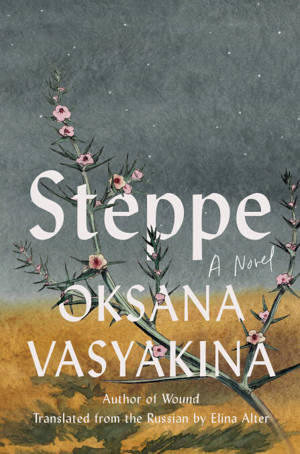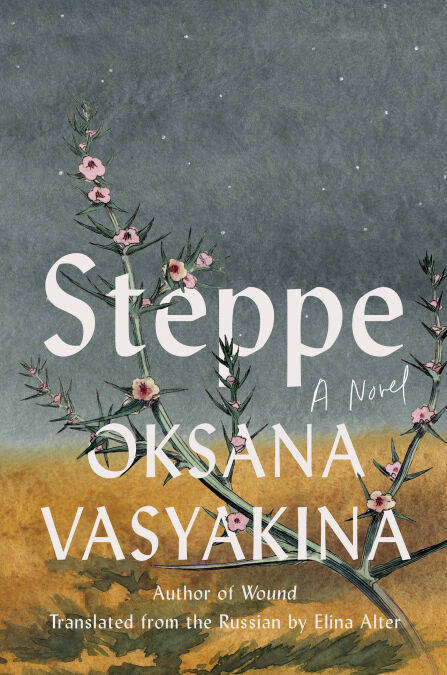
- Afhalen na 1 uur in een winkel met voorraad
- Gratis thuislevering in België vanaf € 30
- Ruim aanbod met 7 miljoen producten
- Afhalen na 1 uur in een winkel met voorraad
- Gratis thuislevering in België vanaf € 30
- Ruim aanbod met 7 miljoen producten
Zoeken
Omschrijving
A visceral, stirring novel following a queer literature student traveling across Russia with her estranged father, a long haul truck driver secretly dying of AIDS, from the acclaimed author of Wound
A decade after her father walks out on her family, the narrator of Steppe, now a literature student, decides to spend some time with him on the road as he makes deliveries across the vast plains of Russia. She’s attracted and repulsed by his rugged life as a trucker, eager to reckon with the ways he’s imprinted on her, to understand the person who made her, to witness their family likenesses.
But the prematurely aged, drug-ruined man secretly being consumed by AIDS who meets her at the train station has little revelation to offer her yearning heart. As he drives her across a severe landscape in his freight truck, the narrator reflects on her father’s role as a small piece of the extensive, violent patriarchal structure of Russian society and the post-Soviet chaos of the 1990s. Always humming in the background, the austere beauty and mercurial nature of the steppe reminds her of the contradictions at the heart of their relationship—both natural and forced; intimate and estranged.
Oksana Vasyakina’s second novel of aching familial hurt pierces the surface of human relations and reaches into the depths of shame, longing, and grief that lie beneath. In simple, precise prose she paints a vivid portrait of estrangement and situates it in the broader context of her country’s attempts to reckon with its troubled history.
A decade after her father walks out on her family, the narrator of Steppe, now a literature student, decides to spend some time with him on the road as he makes deliveries across the vast plains of Russia. She’s attracted and repulsed by his rugged life as a trucker, eager to reckon with the ways he’s imprinted on her, to understand the person who made her, to witness their family likenesses.
But the prematurely aged, drug-ruined man secretly being consumed by AIDS who meets her at the train station has little revelation to offer her yearning heart. As he drives her across a severe landscape in his freight truck, the narrator reflects on her father’s role as a small piece of the extensive, violent patriarchal structure of Russian society and the post-Soviet chaos of the 1990s. Always humming in the background, the austere beauty and mercurial nature of the steppe reminds her of the contradictions at the heart of their relationship—both natural and forced; intimate and estranged.
Oksana Vasyakina’s second novel of aching familial hurt pierces the surface of human relations and reaches into the depths of shame, longing, and grief that lie beneath. In simple, precise prose she paints a vivid portrait of estrangement and situates it in the broader context of her country’s attempts to reckon with its troubled history.
Specificaties
Betrokkenen
- Auteur(s):
- Vertaler(s):
- Uitgeverij:
Inhoud
- Aantal bladzijden:
- 240
- Taal:
- Engels
Eigenschappen
- Productcode (EAN):
- 9781646223084
- Verschijningsdatum:
- 19/01/2026
- Uitvoering:
- E-book
- Beveiligd met:
- Adobe DRM
- Formaat:
- ePub

Alleen bij Standaard Boekhandel
+ 26 punten op je klantenkaart van Standaard Boekhandel
Beoordelingen
We publiceren alleen reviews die voldoen aan de voorwaarden voor reviews. Bekijk onze voorwaarden voor reviews.











